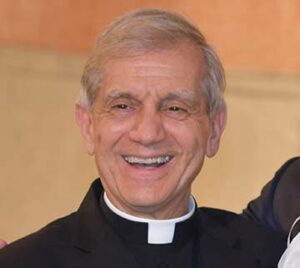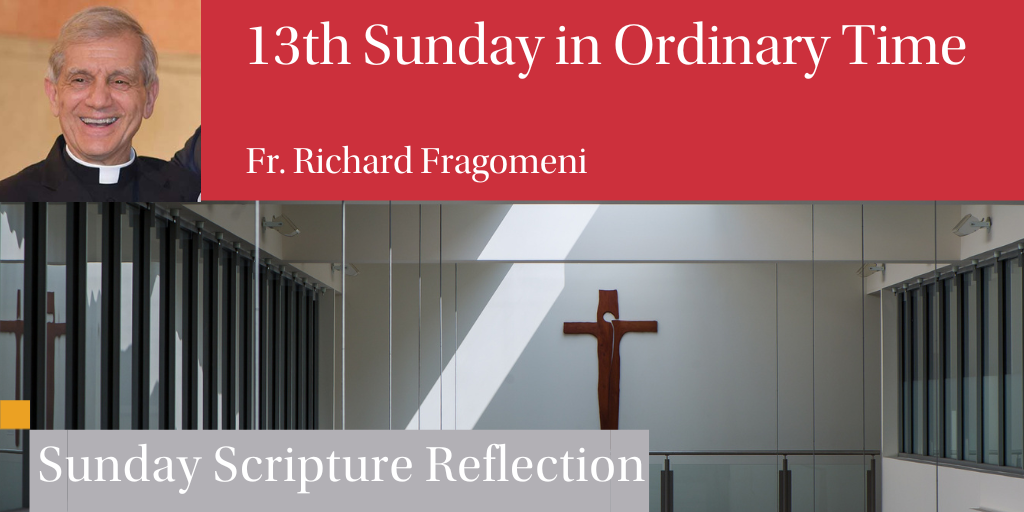
Readings:
Wis 1:13-15; 2:23-24
Ps 30:2, 4, 5-6, 11, 12, 13
2 Cor 8:7, 9, 13-15
Mk 5:21-43 or 5:21-24, 35b-43
Today’s Scripture readings offer insights into the nature of life, the importance of generosity, and the transformative power of faith. Let’s begin with the Book of Wisdom, which tells us, “God did not create death, nor does He delight in the destruction of the living. For He created all things that they might have life.” These words affirm the inherent goodness of creation. Life, in its truest sense, is a precious gift from God, meant to thrive rather than be overshadowed by death and destruction.
The Book of Wisdom also explains that death entered the world through the devil’s envy. This invites us to ponder the origins of suffering and evil. It is not God who brings death but rather the corruption of creation through sin. This makes a clear distinction: God’s will is for life and abundance, whereas death results from turning away from His life-giving presence.
In St. Paul’s second letter to the Corinthians, we are called to excel in the grace of giving. Paul speaks of the generosity of Jesus Christ, who “though He was rich, yet for your sake He became poor, so that you through His poverty might become rich.” This powerful reminder of the Incarnation shows us that Jesus, the Son of God, took on human nature, embracing poverty and suffering to bring us the richness of salvation. His life exemplifies the ultimate model of self-giving love.
Paul further encourages the Corinthians to ensure that their abundance meets the needs of others, fostering equality. He suggests that this is more than just a call to charitable action—it’s a reflection of divine justice. As Christians, our generosity mirrors God’s generosity towards us. When we give, we participate in a divine economy of grace where love and resources are shared freely.
The Gospel of Mark presents us with two intertwined stories of healing and restoration. First, we meet Jairus, a synagogue leader, who falls at Jesus’ feet, pleading for his daughter’s life. Jesus immediately sets out to heal the girl. Along the way, a woman who had been suffering from hemorrhages for twelve years reaches out in faith, touching Jesus’ cloak, believing she will be healed. Her faith is rewarded as she feels healing power flow through her.
Both Jairus and the woman show profound faith. Jairus believes that Jesus can save his daughter from death, while the woman believes that merely touching Jesus’ garment will heal her. Jesus acknowledges her faith, saying, “Daughter, your faith has saved you. Go in peace, and be healed of your affliction.” In both cases, Jesus demonstrates that faith is the key to accessing His divine, life-giving power.
When Jesus arrives at Jairus’ home, He finds mourners convinced the girl is dead. Yet, Jesus, with divine authority, proclaims, “The child is not dead but asleep.” He takes her by the hand and says, “Talitha koum,” which means, “Little girl, I say to you, arise!” Immediately, she rises and walks.
These miracles highlight Jesus as the Lord of life. His touch brings healing and restoration, overturning the finality of death. In both stories, faith is essential. The woman’s faith leads to her healing, and Jairus’ faith results in the restoration of his daughter’s life.
Consider the story of Dr. Jonas Salk, the scientist who developed the first successful polio vaccine. Polio was a devastating disease that caused paralysis and death worldwide. Dr. Salk faced numerous challenges and setbacks in his research, but he persisted, driven by a deep belief in the possibility of finding a cure.
Salk’s unwavering dedication and faith in his work led to the development of the polio vaccine, which has since saved millions of lives. His story reminds us that faith, combined with persistent effort, can lead to miraculous outcomes. Much like the woman who reached out to touch Jesus’ cloak, Dr. Salk’s faith in the potential for healing and his determination to pursue it resulted in a significant breakthrough.
Today, these readings call us to live out our faith in concrete ways. Like the Corinthians, we are called to practice generosity, recognizing that our abundance should alleviate the suffering of others. By sharing our resources, we imitate Christ’s self-giving love.
Furthermore, we are invited to deepen our faith, trusting in Jesus’ power to bring life out of death and hope out of despair. Whether we face physical illness, emotional turmoil, or spiritual struggles, we are called to reach out to Jesus with the same faith as Jairus and the hemorrhaging woman.
As we prepare to receive the Eucharist on Sunday, let us remember that this sacrament is the ultimate invitation to communion with Christ. In the Eucharist, we receive Christ’s body and blood, the true bread from heaven that nourishes our souls and strengthens our faith. We become one with the living Christ, who dwells within us so that we may live and move and have our being in Christ.
Let us embrace the life God offers us, respond to such great generosity with our own, and approach Christ with unwavering faith, confident that Christ will bring healing and restoration. As we partake in the Eucharist this week, let us renew our commitment to live in deeper communion with Christ, allowing the Spirit to transform our lives and, through us, the lives of those around us. Amen.
